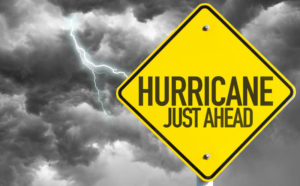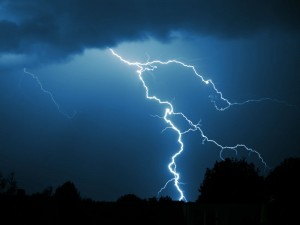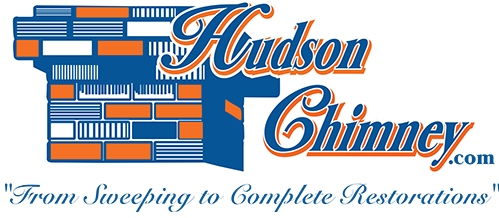by Mark Hudson | Nov 10, 2017 | Storm Damage
Our service area of Jacksonville, Florida has been battered this summer by tropical storm systems, and there is more to come. While hurricane season is typically categorized as being from June to November, Nor’easter storms are just starting.
Nor’easter storm systems are storms along the East coast of North America. They come from the northeast, bringing with it cooler temperatures, heavy precipitation, and gale force winds. These types of storms have brought snow into the area in the past, and can again in the future. The odd weather in the last few years means we need to be ready for anything here in Northeast Florida to prevent damage and detect it early-on.
Preventative Measures
The best way to prevent storm damage is to prevent it. Natural disasters like hurricanes, Nor’easter storms, and even tornadoes can occur with little warning since even weather predictions can be miscalculated. You can give your chimney system its best chance by making sure it’s ready for any storm that might come your way.
Schedule Annual Chimney Inspections
The Chimney Safety Institute of America (CSIA) along with the National Fire Protection Association (NFPA) recommends annual inspections in order to have the safest and most efficient chimney system. An inspection will identify any weakness in your system. It’s a look at the entire system from top to bottom that will let you know what needs to be done to keep water, wind, and time from damaging your chimney system.
Install a New Cap
You can purchase a chimney cap that deflects wind from the flue opening. In this area where hurricanes and tropical storms typically produce strong winds, this is a great option. Ask Hudson Chimney about custom chimney caps that will help you protect your chimney system.
Schedule Waterproofing Services
Hudson Chimney recommends and applies ChimneySaver water repellent, which creates a barrier that water cannot penetrate. This is a specially formulated sealer that allows vapors to escape while keeping water molecules out. It will not only protect your masonry this season but for years.
Detecting Damage
The best way to detect storm damage is to hire a professional to assess your chimney. Inspections are recommended annually, but if your home was affected by the storm (trees fallen, shingles missing, etc.) then your chimney was most likely affected and you should call a professional. Hudson Chimney will assess your chimney in one quick and affordable appointment. This service may even be covered by your homeowner’s insurance if you have filed a storm claim. In general, an inspection will save you money in the long run, because letting damage go undetected is the best way to ruin a chimney. Water damage ruins masonry from the inside out and happens behind the scenes. By the time the average homeowner notices water and storm damage, it has likely caused costly and devastating damage already.
Take precautions this season to protect your chimney against storm damage. Prevention now can save you money later, and a chimney that is damaged is unsafe for your home and family. Let Hudson Chimney take care of your comprehensive chimney needs, and rest assured that yours will make it through the season and more.
Call Hudson now at 904-282-4159.
by Mark Hudson | Oct 23, 2017 | Storm Damage
One thing that many homeowners try to prepare for is hurricanes. This is especially true if you live in Florida. How many homeowners are prepared for more than one hurricane? How about two hurricanes and one tropical storm in one season? Our customers in Jacksonville are busy putting things back together after devastating storms statewide. Now we’re here to help!
Common Storm Damage
Tropical storms come with sustained winds of 39 mph and higher. Once the maximum sustained winds pass 74 mph, the storm is considered a hurricane. Tropical storms, hurricanes, and even a heavy thunderstorm can cause damage to your chimney system. Winds can blow off or damage flashing and chimney caps. Hail and rain can damage masonry, and if the damage isn’t repaired, more can occur. This season, our service area in Jacksonville has been battered, and you might not have gotten the repairs your chimney needed before another storm passed through.
Your Chimney Cap
In high-wind areas, you can opt for a chimney cap designed to handle hurricane-force winds, and deflect wind from coming into the flue. A functional cap should block rain from falling into the flue. However, when it blows off during a serious storm, it will allow water into the chimney system. Water destroys a chimney from the inside out. If it isn’t corrected, it will continue to ruin parts of the chimney system, as well as components of the home.
Your Flashing
The flashing is made up of thin sheets of metal, placed along the seam of the roof and chimney intersection. This is the most vulnerable of all the chimney system. Not to mention it becomes worse when flashing is installed incorrectly – as it often is. It’s best to have the chimney inspected regularly and know the flashing is in good shape and ready for Florida weather. What happens if the flashing becomes damaged, shifts, or is blown away? Water from tropical storms will penetrate the roof, affecting the chimney, flooring, walls, and structural materials of the home!
Your Chimney Repairs
Hudson Chimney sees a lot of storm damage this time of year, after hurricane season, and before fall. This is the time that homeowners are getting ready for burn season. So, it’s the best time to have the chimney inspected and schedule necessary repairs.
Flashing Repair – Hudson Chimney repairs flashing with the expertise required to properly place flashing according to the slant of the roof, the roofing materials, and the high wind area you live.
Masonry Repair – Depending on the damage to the masonry itself, whether water or wind damage, a masonry repair may be in order. Hudson Chimney sweeps can repair spalling masonry through a process called tuckpointing, replace chimney crowns, and waterproof the masonry for added protection.
When the storm has passed, it’s time to assess the damage, and start repairs. If you have questions about chimney damage, preventative maintenance, and insurance claims, a Hudson Chimney technician can assist you. Just call 904-282-4159 or schedule an appointment with Hudson Chimney online today!
by Mark Hudson | Nov 5, 2016 | Storm Damage
At Hudson Chimney, we know firsthand the affect of recent storms on our neighbors in Jacksonville and surrounding areas. Our technicians live in the area, and know the damaging affects that high winds and water have on their homes.
 Hurricanes and tropical storms bring with them strong winds. These winds can can rip up flashing, damage chase pans and chimney caps, damage masonry, wear down chimney crowns and more. When these important parts of the chimney are damaged or missing, the water then has access to the chimney system. The water alone causing extensive damage itself. In our tropical climate, it’s important to repair damages like this as soon as possible. The best place to start is with a chimney inspection.
Hurricanes and tropical storms bring with them strong winds. These winds can can rip up flashing, damage chase pans and chimney caps, damage masonry, wear down chimney crowns and more. When these important parts of the chimney are damaged or missing, the water then has access to the chimney system. The water alone causing extensive damage itself. In our tropical climate, it’s important to repair damages like this as soon as possible. The best place to start is with a chimney inspection.
We Provide Inspections
According to the Chimney Safety Institute of America (CSIA), you should schedule a level two chimney inspection if your chimney has experienced a change or a natural occurrence that might have compromised the integrity or safety of the chimney system, including hurricanes. Our technicians provide expert and prompt service. In addition, our inspections include a video scan of the chimney system to provide a comprehensive report for your records.
We Will Sweep Your Chimney
The chimney sweep is vital to the safety and efficiency of your chimney, especially if your chimney cap was lost during the storm. During your chimney sweep, our technicians will remove all storm debris from the chimney. Also, removing the naturally occurring buildup of creosote on the chimney walls.
Common Storm Repairs for Your Chimney
Our experience of over 30 years of operation in the area has taught us what to look for first when dealing with storm damage.
- Masonry and Fireplace Repair
Our technicians will look for and repair cracks, receding mortar joints, crumbing or cracking chimney crowns, and any other type of masonry shifting or damage. This commonly occurs due to high winds during a storm, and is worsened by prolonged water exposure.
- Chimney Relining
We look for damage to the flue liner. Depending on the type of liner in your chimney, our technicians may choose to replace it with a more durable liner. However, our chimney sweeps may choose to apply HeatShield® cerfractory sealant. This product is applied to an existing flue liner, leaving a new, heat resistant surface to your chimney liner.
- Flashing Installation and Repair
We look for flashing damage, because any damage at all will affect it’s durability. A single dent can affect the way the water flows across it. This may allow it to penetrate the flashing and the roof. Consequently causing water damage not just within the chimney, but in the home itself.
Hudson Chimney offers a full menu of chimney services and we want to be your choice for storm repairs. To find out more about waterproofing and damage prevention contact a Hudson Chimney professional today.
by Mark Hudson | Jun 4, 2015 | Storm Damage
Since we call Northeastern Florida our home, Hudson Chimney is familiar with the heavy rains that come with summer storms, and we are very experienced with the damage these rainstorms can do to chimneys. Repairing leaky chimneys and preventing further water penetration of masonry chimneys are two jobs you can trust our certified chimney technicians with performing. We would like to tell you more about the damage water leaks can do to your chimney and your home as well as the preventive measures we can take to protect your masonry chimney from the heavy rains of the summer storms we frequently see in our area.

THE DAMAGE DONE BY WATER PENETRATION
According to the Chimney Safety Institute of America (CSIA), water is your masonry chimney’s biggest enemy. Since chimneys are built using materials like brick, mortar, concrete, stone, flue tile, steel, and cast-iron, they are seriously compromised by water leaks because every one of these building materials are negatively affected by direct contact with water. What kind of damage can water penetration do to your masonry chimney system and home? Examples of the expensive and possibly dangerous damage from water leaks include the following:
- rusted fireplace and chimney parts
- rotted wood that surrounds your fireplace
- stains on the walls and ceilings around your fireplace
- deteriorated exterior chimney
- cracked or damaged flue liner
- collapsed hearth support
- leaning or collapsed chimney structure
THE PREVENTION OF WATER LEAKS
The certified chimney technicians at Hudson Chimney offer a couple of ways to protect your masonry chimney from water penetration and remove the possibilities of water leaks, including:
Waterproofing
Using a 100% vapor permeable formula that allows your chimney to still be able to “breathe,” our chimney technicians will apply this formula to let water that has already penetrated your masonry chimney escape, which will prevent future damage such as spalling and erosion due to the freeze-thaw process. Furthermore, the waterproofing formula keeps water from entering from the outside to protect your masonry chimney from water leaks and other deterioration. You can trust Hudson Chimney to never use paint or clear sealers as these may cause even more spalling damage by trapping water vapors and moisture inside your chimney.
Flashing
A poorly done flashing job can actually cause water to penetrate your chimney because water from rain and melted snow can enter through gaps in the flashing. Our technicians will customize the flashing to properly fit around your exterior chimney where it meets the roof. We will work with a licensed roofer to guarantee the flashing has been done correctly.
Be prepared for the heavy rains from the upcoming summer storms. Contact Hudson Chimney to prevent water penetration damage of your masonry chimney.


